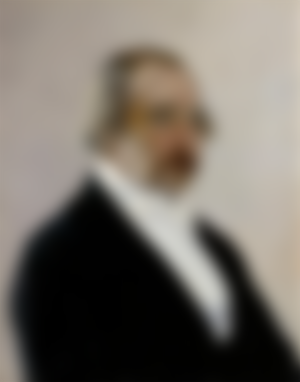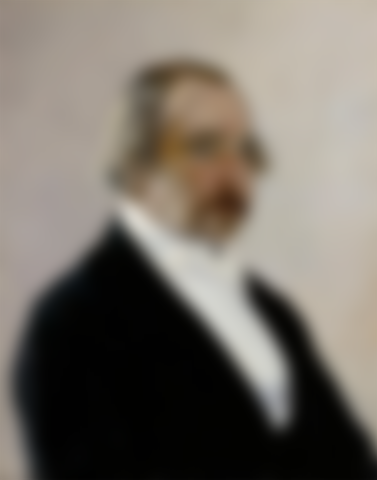How many European military commanders have ever taken Moscow? Who and when?
The answer is that only two commanders have accomplished that. The second and best known one was Napoleon I, in 1812. A campaign that changed his so far almost unchallenged success to a catastrophe, ending with his own abdication as the Emperor of the French less than 2 years later. For Napoleon, as well as later for Hitler, overcoming Russia was not only impossible, the attempt to do so crushed everything for them, changing personal success to failure. Hitler, however, never took Moscow; Napoleon did.
In June 1812, Napoleons Grande Armée entered Russia with about 450,000 soldiers. On 14 September, after a hard advance with huge losses, the Emperor entered an empty and abandoned Moscow, and stayed for 5 weeks, after which he chose to leave and retire to the south west. Cold weather, illness and lack of food, in combination with Russian guerilla warfare, broke down his army. When, on 14 December (1812), they left Russia, only 10,000 soldiers remained.
As well Napoleon as Hitler made the huge mistake of attacking Russia while at the same time having another ongoing war. A two-front war is always a nightmare. Hitler had his war in the West, with Great Britain and its allies; Napoleon had the so-called peninsular war, against Spain, United Kingdom and Portugal. This war was ultimately about the control of the Iberian peninsula, and it didn't end until Napoleon was conclusively defeated in 1814.
The first warlord who took Moscow from the West is less known. It was Swedish Military Commander Jacob Pontusson De la Gardie, who conquered Moscow in 1610. In 1611, during the so-called Time of Troubles in Russia, he managed to get the son of King Charles IX of Sweden appointed to Tsar. The son soon inherited the Swedish throne as Gustav II Adolf, also known as Gustavus Adolphus, and his brother Carl Filip took his place as the nominal Tsar.
Despite De la Gardie’s arrangements and frequent requests that the new Tsar of the Swedish House of Vasa should come and take his throne, the interest in this in Sweden was very limited. Carl Filip never came to Russia, much due to his mother, the dowager queen, whose favourite son he was. She didn’t want to let him leave. That is one of the explanations offered – a plausible one indeed. But whatever the reason might have been, the matter was delayed until the Russian supporters lost interest and chose Mikhail Romanov as the new Tsar. A remarkable negligence by the power-conscious House of Vasa, who already held the throne in Sweden (including Finland and most of the Baltic area), and by another branch the one in Poland, and whose Swedish branch with Gustavus Adolphus would cross Europe with his armies and threaten the Holy Roman Empire. Indeed, Gustavus Adolphus, a devoted Protestant, wanted to create a Northern Protestant Empire as a counterweight to the staunchly Roman Catholic Holy Roman Empire.
Although the monarch never assumed imperial status, history counts with a Swedish empire between 1611 and 1721. 1611 was the year Gustavus Adolphus ascended the throne.

For those of you who like to read, I would like to recommend “War and Peace” by Leo Tolstoy (1828-1910). It is an epic about Russia during the Napoleonic era, by one of the greatest novelists of all times. Mind you, it is no scientific history book, but it remains one of the best means to absorb the history stuff as well as the atmosphere at that time.
(Photo above: Tolstoy on 23 May 1908 at Yasnaya Polyana. Litograph print by Sergey Prokudin-Gorsky. Public Domain.)
As for De la Gardie's Russian campaign, I have not found any epic literature.
For those interested in Gustavus Adolphus's time in general, however, there is one book of interest that at least was available for free on internet in an English translation some time ago: “Times of Gustav Adolf” by Zacharias (Zachris) Topelius.

(Above: Portrait of Zacharias Topelius, painted by Gunnar Berndtson in 1880. Public Domain.)
Internationally not so well known, Z. Topelius (1818-1898) is one of the foremost early authors of historical novels in the Swedish language. He is fabulating, but , as a professor of history, his historical frameworks are more or less accurate. Himself a Finnish, he favours Finnish-Swedish history.
It should be noted that, in the time of Gustavus Adolphus, Finland was a part of Sweden.
Copyright © 2021 Meleonymica/Mictorrani. All Rights Reserved.
(Lead Image: Napoleon's withdrawal from Russia, painting by Adolph Northen. Public Domain.)
You find my articles related to literature here, and to history here.
Interested in history, legends and myths, join my community History, Myths, Legends & Mysteries (be45).
You find all my writings on Read.Cash, sorted by topic, here.


So what if, Moscow is invaded? hehe nice story tho